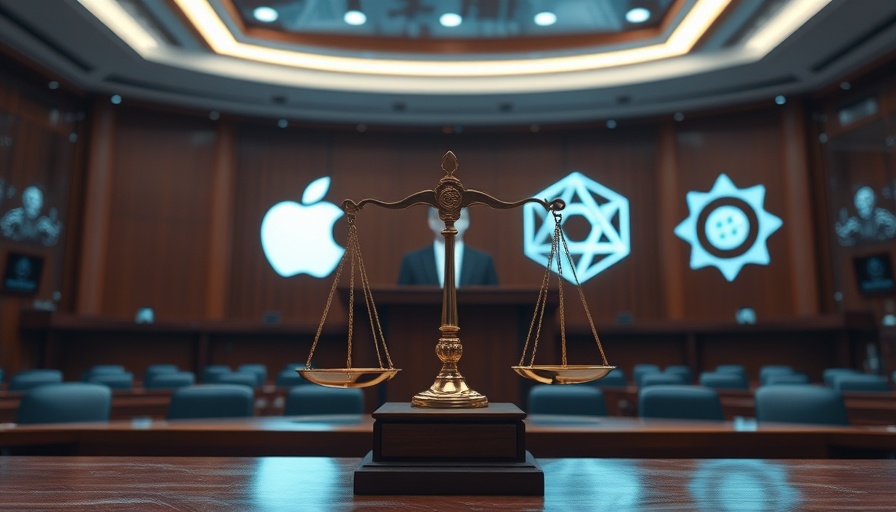
Elon Musk Takes on Tech Giants in Bold Legal Move
In a disruptive challenge to the tech industry, Elon Musk has officially accused Apple and OpenAI of stifling competition in the burgeoning field of artificial intelligence (AI). Filed in a Texas federal court, the lawsuit reveals Musk’s intentions to secure monetary damages and a court order to halt what he calls "illegal tactics" designed to squash potential rivals like his own xAI's Grok chatbot.
A Tech-Giant Alliance? Examining the Allegations
Musk's legal complaint is rich with allegations, claiming that Apple has orchestrated a partnership with OpenAI to maintain dominance over the AI landscape. Musk argues that by favoring OpenAI's ChatGPT in the App Store, Apple has directly undermined competition, preventing other innovative technologies from gaining traction. This partnership, Musk adds, poses a foreboding challenge for newcomers aiming to carve out a niche in the AI sector.
The Existential Threat of AI
The lawsuit paints Apple as feeling threatened by the rise of AI. Musk contends that this has driven it to ally with OpenAI in what he describes as a “tale of two monopolists.” The core argument posits that Apple views AI not as a tool for enhancement but as an existential threat, resulting in what Musk argues is a conspiratorial move to safeguard Apple’s profits and longstanding market share.
OpenAI's Counterattack: Escalation in Tensions
The drama escalates as OpenAI has countered Musk's lawsuit with its own claims of harassment. By framing the new filings as indicative of ongoing harassment, OpenAI seeks to discredit Musk's legal actions, creating a fascinating, although contentious legal landscape in the tech industry.
The Broader Implications for Competition in AI
This lawsuit could have significant implications for how competition is perceived and regulated within the technology realm. The accusations reverberate against a backdrop of government scrutiny over big tech's monopolistic practices. Echoing sentiments present in previous antitrust actions against Apple, such as those pursued by the U.S. Department of Justice, Musk's lawsuit accentuates ongoing concerns about fair competition in rapidly-evolving markets.
Market Dynamics: How This Might Affect Consumers
For consumers, the outcome of this legal battle could affect access to various AI technologies. If Musk's allegations hold validity, and competition is fostered through legal intervention, we may see a diversification in the types of AI solutions available to consumers. Greater choice in technology for users could enhance functionalities and create healthier competition that encourages innovation.
Looking Ahead: Future Predictions in the Tech World
As the tech world turns its attention to this legal saga, it's essential to consider what it means for the future of AI development. If Musk successfully highlights the dangers of monopolistic behavior, it may pave the way for a more equitable playing field. This legal fight emphasizes how the competition in AI will not just involve algorithms and data, but also courtrooms and legal strategies.
Why This Matters
AI technology is transforming lives at an unprecedented rate. As this lawsuit unfolds, we must stay vigilant about the integrity of competition in this space. When just a few organizations hold the reins of technology that impacts daily life, the stakes are high. Understanding these dynamics empowers consumers to advocate for fairer practices in technology.
Final Thoughts: Staying Informed
As the story progresses, anyone interested in technology, innovation, and competition should keep a close eye on the developments surrounding this lawsuit. Remaining informed about the battles being waged not only shapes our understanding of the tech landscape but also emphasizes the importance of equitable business practices.
Consider joining forums and communities that focus on discussions about technology and competition. Share your thoughts on how you believe this lawsuit might influence the future of AI and tech innovation.
 Add Row
Add Row 
 Add
Add 


Write A Comment